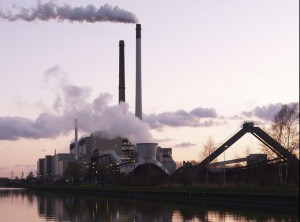
When the EPA announced it final regulation on Monday, Alaska would be, it was determined, exempt from the greenhouse gas emissions restrictions that other states across the country now face. The rule establishes state-specific goals for the 48 contiguous states to limit carbon emissions from larger public power plants. However, because of Alaska’s isolated energy infrastructure and limited grid system, the EPA ruled there is not enough information on what reductions are feasible in Alaska to set goals here at this time.
In a call with state officials, the agency said there was not enough information at this time about how much carbon emissions states and commonwealths that were not part of large regional power grids would be able to cut using the means outlined in the final rule. EPA officials said they would start work soon towards setting goals for Alaska and the other islanded states, but did not set a deadline for accomplishing this task.
Governor Walker was pleased with the announcement concerning the Clean Power Plan. “Alaska has over 200 small utilities across the state, and a very limited power grid on the railbelt. Requiring our state to abide by ‘one-size-fits-all’ standards could potentially increase our energy costs, which are already the highest in the nation,” said Governor Walker. “I am pleased that the EPA has recognized the unique circumstances Alaska is facing, and I look forward to working with the agency officials to come up with appropriate goals for the state in the near future.”
Senator Murkowski issued a statement after the EPA announcement. “A few hours ago, I spoke with EPA Administrator Gina McCarthy, who told me that Alaska will be exempt from the steep requirements of its final rule. This is by far the best possible outcome for our state and therefore a significant victory. I appreciate the EPA’s recognition of the facts – that Alaska has unique needs, limited options for cost-effective compliance, and is not interconnected. We simply should not be bound by this sweeping regulation,” Murkowski said.
“Although I appreciate EPA’s recognition of Alaska’s unique needs and challenges, I continue to have very strong concerns about the national impacts of this rule,” Murkowski added. “In the days ahead, I will be reviewing it closely to determine its impacts on electricity prices, the reliability of our electric grid, and many other related factors. While it is a positive for Alaska to be exempt, I am mindful of the fact that nearly every other state will be forced to comply, and of the burdens that will impose across the country.”

